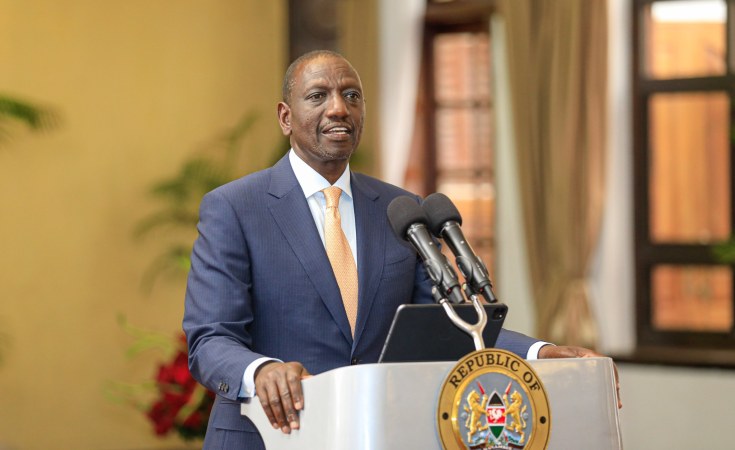Nairobi — President William Ruto has given the strongest indication yet again of impending changes in his government following the rejection of the budget proposals that sparked unrest in the country.
President Ruto told the Cabinet of what he described as "significant changes" but did not elaborate, days after a media interview in which he spoke of a possible reshuffle at the top of his Executive.
"The President said the government must now focus on charting a new future for the country, pointing out that significant changes must be made to align with that new future," the president said as quoted in a dispatch from his office.
Kenyans, primarily the youth, who have been protesting, are demanding major changes in the government, including the dismissal of some Cabinet Secretaries accused of corruption and misuse of public funds.
In response to the calls by the youths, Ruto said he is "soul-searching" and will act soon when asked if he had confidence in his Cabinet.
The protests, sparked by the Financial Bill 2024, have left more than 40 people dead, mostly shot by police.
State House said the Cabinet has resolved that any officers who acted outside the law will be prosecuted.
"On any officers who may have acted outside the confines of the law, the Cabinet said they will be dealt with in accordance with legal procedure and by the institutions mandated to do so," the Cabinet resolved Wednesday. They also called for action against those who committed crimes such as arson, looting, and robbery, stating that such atrocities must not go unpunished.
Several suspects have already been charged in court with looting and arson following the destruction of property during the protests.
On the withdrawn Finance Bill, President Ruto said that the National Treasury is reorganising the budget to accommodate the new reality. This will involve substantial budget cuts to balance what can be implemented immediately and what can wait, ensuring that key national programmes are not affected.
"Our plan is good and solid and, in the fullness of time, we shall be vindicated," President Ruto said. He declined to sign the Financial Bill, sending it back to Parliament for withdrawal.
The Cabinet was informed that criminal and opportunistic political forces infiltrated and hijacked peaceful protests, causing terror in cities, towns, and other urban areas, resulting in loss of life, and destruction of national and county government buildings, infrastructure, vehicles, homes, and businesses.
Due to threats posed to Parliament, the Supreme Court, and other infrastructure, all national security agencies, including the military, were deployed to prevent a breakdown of law and order. The situation has since been stabilized by security agencies, who continue to monitor developments.
The Cabinet commended security officers for acting professionally under difficult circumstances and noted their efforts in protecting the country from anarchists.
In other matters, the Cabinet discussed the implementation of the Kenya Urban Improvement Project in the Nairobi Metropolitan Area, including the phased upgrade of the 163km Nairobi Commuter Rail.
The first phase will involve improving the 58km commuter rail between Nairobi Central Railway Station and Thika. The project will also include the acquisition of new locomotives and the improvement of non-motorized transport infrastructure and feeder roads along the Nairobi Commuter Rail network.
The Cabinet also approved several key Bills and policies to advance national development and international cooperation.
One of the significant approvals includes the Kenya Secondary Education Equity and Quality Improvement Programme. This initiative aims to enhance the quality and accessibility of secondary education across the country, ensuring equitable opportunities for all students.
Additionally, the Cabinet sanctioned the Kenya-United Arab Emirates Comprehensive Economic Partnership Agreement, which seeks to bolster economic ties and trade relations between Kenya and the UAE, fostering mutual growth and investment.
In a move to promote youth engagement in continental trade, the Cabinet agreed to co-host the Second Edition of the African Continental Free Trade Area Youth Symposium from September 5-7, 2024. This event will provide a platform for young leaders to discuss and contribute to the implementation of the African Continental Free Trade Agreement (AfCFTA).
The Public Finance Management (Amendment) Bill 2024 was also approved, aiming to enhance the efficiency and transparency of public finance management, ensuring better accountability and utilization of public resources.
Furthermore, the Cabinet ratified Bilateral Air Services Agreements between Kenya and several countries, including Somalia, Morocco, Algeria, Swaziland, Zimbabwe, Guinea, the United Kingdom, and South Korea. These agreements are expected to improve air connectivity, boost tourism, and facilitate easier movement of goods and people between Kenya and these nations.


